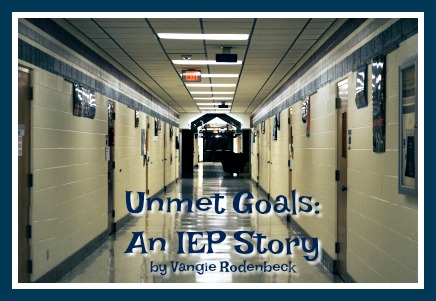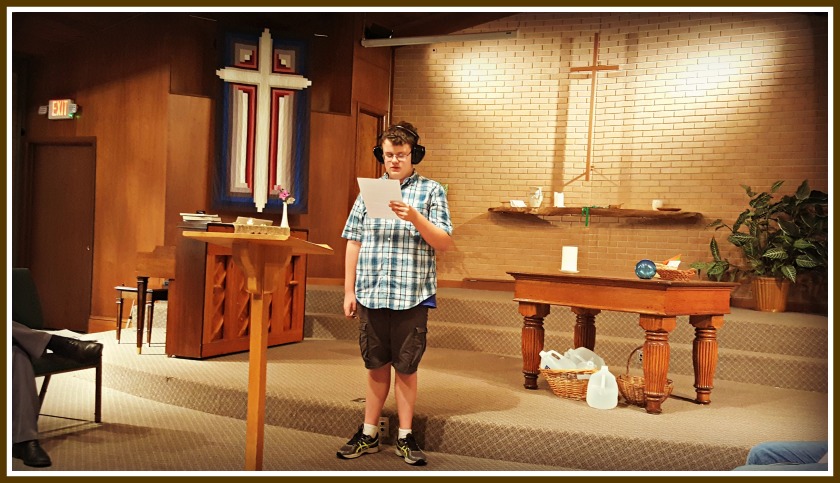Our Individualized Education Plan turns 15 years old this year. While most of my time now is spent looking toward our immediate future and how we will transition out in just 18 months time, I always get reflective after our annual meeting. This year was no different.
I was surprised to find, as we were cleaning up old language and editing parts of this adolescent document, that many of our goals are no longer needed. We no longer need mathematics goals. His writing goal that was once in place because of such weak expression is obsolete because his teacher notes that he now “writes with voice.” Because he is reading at or above grade level, reading goals could also be deleted. In general, Noah’s 3.5 grade point average has marked him as a success of the Special Education System. This child who was once predicted to never read, write, or speak is now expected to receive college scholarships.
But some of our goals still go unmet. Objectives are still in place to assist with general anxiety in the classroom. Articulation goals may stay in place for Speech because the “r sound” still eludes. And the ever-daunting Social Skills Objectives remain as they have for longer than I can remember.
Among them, “Noah will initiate conversation with peers….”
As the team honestly assessed Noah’s lack of interest in this area, one of his teachers spoke up with a story that still has me pondering. It seems that not long ago Noah witnessed an accident in the hallway. One of his peers accidentally tripped another student as they knelt in the hall to adjust their books. The boy who fell became immediately angry and moved toward the other with raised voice, ready to fight.
Noah’s teacher said, “Before I knew what was happening, Noah stepped out between them and began to try and diffuse the situation. Noah said, ‘We all need to relax. He didn’t do this on purpose. I saw it; it was unintentional. This was just an accident so we don’t need to fight about it.’”
Noah the Peacemaker, unwilling to “initiate a conversation with peers” (a.k.a. small talk), is completely willing to speak into the middle of conflict to stop violence and make amity. Everyone smiled and a silent understanding was reached that perhaps this unmet goal wasn’t the tragedy it seemed.
Noah will speak up when it is necessary. He will speak truth. He will speak reconciliation. He will speak harmony. He will speak resolution. He will speak compromise. He will speak peace.
But he doesn’t do small talk. This goal remains unmet. And I think I am good with that.











